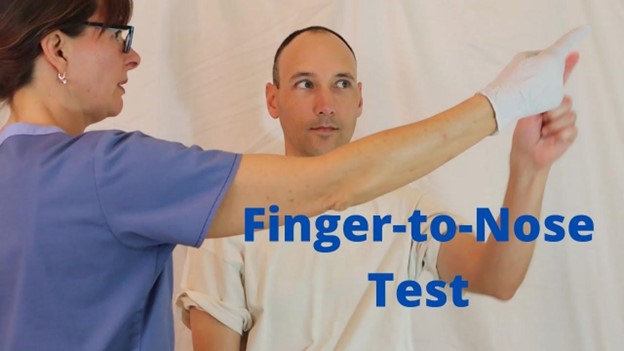A nurse on a medical-surgical unit is planning care for four clients. Which of the following tasks should the nurse delegate to an assistive personnel (AP)?
Administering a rectal suppository for a client who has postoperative constipation.
Instructing a postoperative client to use an incentive spirometer.
Measuring blood glucose using a monitor for a client who has diabetic ketoacidosis.
Using a pulse oximeter to measure oxygen saturation for a client who is ready for discharge.
The Correct Answer is D
Choice A rationale: Administering a rectal suppository is a medication administration task that should be performed by a licensed nurse, not delegated to an assistive personnel.
Choice B rationale: Instructing a client to use an incentive spirometer involves providing education and ensuring proper technique, which falls within the scope of practice of a licensed nurse.
Choice C rationale: Measuring blood glucose for a client with diabetic ketoacidosis involves monitoring a critical condition and interpreting results, which should be done by a licensed nurse.
Choice D rationale: Using a pulse oximeter to measure oxygen saturation is a simple and routine task that can be delegated to an assistive personnel for a stable client who is ready for discharge.
Nursing Test Bank
Naxlex Comprehensive Predictor Exams
Related Questions
Correct Answer is C
Explanation
Choice A rationale:
Positioning the client so that they are lying flat (Choice A) is not the appropriate action after evisceration. Evisceration is the protrusion of internal organs through a wound, and lying flat could potentially put pressure on the exposed organs and worsen the situation.
Choice B rationale:
Increasing the client's oral fluid intake (Choice B) is generally a good practice for postoperative care, but it is not the priority in the case of evisceration. The primary concern is protecting the exposed organs and preventing infection.
Choice C rationale:
Preparing the client for emergency surgery (Choice C) is the correct action after observing evisceration. Evisceration is a surgical emergency, and the client needs immediate medical intervention to repair the wound and secure the exposed organs.
Choice D rationale:
Applying gentle pressure to the dressed wound (Choice D) is contraindicated in the case of evisceration. Applying pressure could further damage the exposed organs and increase the risk of infection.
Correct Answer is C
Explanation
Choice A rationale:
The walking gait test is used to assess a client's walking pattern and balance, particularly for identifying abnormalities in gait. However, it doesn't specifically evaluate sensory functions, making it an inappropriate choice for this scenario.
Choice B rationale:
The plantar reflex test, also known as the Babinski reflex test, assesses the neurological integrity of the corticospinal tract. It involves stimulating the sole of the foot to elicit specific reflex movements. While this test is important in assessing neurological function, it doesn't directly evaluate sensory functions as requested in the question.
Choice C rationale:
The finger-to-nose test is a part of the neurological examination used to assess a client's coordination and proprioception. In this test, the client is asked to touch their nose with their index finger while alternating between eyes closed and eyes open. This evaluates their ability to sense the position of their limbs in space (proprioception) and their coordination. It directly addresses the focus of the question, making it the correct choice.

Choice D rationale:
The Romberg test evaluates a client's balance and proprioception. It involves having the client stand with their feet together and their eyes closed to assess their ability to maintain balance without visual input. While this test is relevant to sensory functions, it primarily assesses proprioception and balance rather than coordination, which the question is specifically targeting.
Whether you are a student looking to ace your exams or a practicing nurse seeking to enhance your expertise , our nursing education contents will empower you with the confidence and competence to make a difference in the lives of patients and become a respected leader in the healthcare field.
Visit Naxlex, invest in your future and unlock endless possibilities with our unparalleled nursing education contents today
Report Wrong Answer on the Current Question
Do you disagree with the answer? If yes, what is your expected answer? Explain.
Kindly be descriptive with the issue you are facing.
